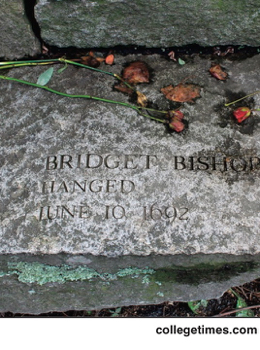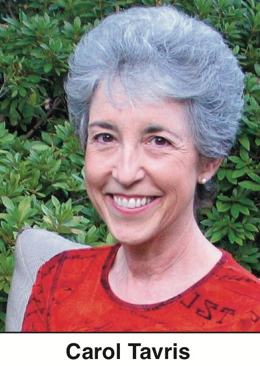Rascals case in brief
In the beginning, in 1989, more than 90 children at the Little Rascals Day Care Center in Edenton, North Carolina, accused a total of 20 adults with 429 instances of sexual abuse over a three-year period. It may have all begun with one parent’s complaint about punishment given her child.
Among the alleged perpetrators: the sheriff and mayor. But prosecutors would charge only Robin Byrum, Darlene Harris, Elizabeth “Betsy” Kelly, Robert “Bob” Kelly, Willard Scott Privott, Shelley Stone and Dawn Wilson – the Edenton 7.
Along with sodomy and beatings, allegations included a baby killed with a handgun, a child being hung upside down from a tree and being set on fire and countless other fantastic incidents involving spaceships, hot air balloons, pirate ships and trained sharks.
By the time prosecutors dropped the last charges in 1997, Little Rascals had become North Carolina’s longest and most costly criminal trial. Prosecutors kept defendants jailed in hopes at least one would turn against their supposed co-conspirators. Remarkably, none did. Another shameful record: Five defendants had to wait longer to face their accusers in court than anyone else in North Carolina history.
Between 1991 and 1997, Ofra Bikel produced three extraordinary episodes on the Little Rascals case for the PBS series “Frontline.” Although “Innocence Lost” did not deter prosecutors, it exposed their tactics and fostered nationwide skepticism and dismay.
With each passing year, the absurdity of the Little Rascals charges has become more obvious. But no admission of error has ever come from prosecutors, police, interviewers or parents. This site is devoted to the issues raised by this case.
On Facebook
Click for earlier Facebook posts archived on this site
Click to go to
Today’s random selection from the Little Rascals Day Care archives….
Click for earlier Facebook posts archived on this site
Click to go to
Today’s random selection from the Little Rascals Day Care archives….
Prosecutors’ motto: But they’re still guilty!
Jan. 20, 2012
Although the West Memphis Three weren’t day care workers, their notorious case – most recently updated in HBO’s “Paradise Lost 3: Purgatory” – holds obvious parallels to that of the Edenton 7.
In both courtrooms voodoo justice ruled.
Most poignant to me, however, is that prosecutors in Arkansas and North Carolina shared a dedication to ensuring the defendants’ long-overdue release bore the least possible resemblance to exoneration.
In August 2011 the West Memphis Three were required to enter an Alford plea, maintaining their innocence but acknowledging that sufficient evidence existed to convict them.
On May 23, 1997, Nancy Lamb announced the decision not to challenge the overturned convictions of Bob Kelly and Dawn Wilson in order to “allow wounds to heal…. The paramount thing is not having to drag these children through this again.” Her timing seemed aimed – futilely, as it turned out – at averting the national outrage that would come four days later with the airing of the final episode of “Innocence Lost.”
Two years later, when the last charges against Kelly were dismissed, here’s how Joseph Neff of the News & Observer described the scene:
“The prosecutors in the longest, most expensive criminal case in North Carolina history picked a day when all attention was focused elsewhere to quietly throw in the towel.
“It was Sept. 15, as Hurricane Floyd churned northward toward landfall the next day, that Assistant District Attorney Nancy Lamb filed a two-page document with the Clerk of Superior Court in Edenton, dismissing eight counts of sexual abuse against Robert Kelly.”
Excuses for denying exoneration (Salem version)
 July 21, 2015
July 21, 2015
“When Massachusetts exonerated the Salem victims in 1710 it overlooked six women. They remained missing through the 1940s and 1950s as the commonwealth considered pardons but could not seem to make up its legislative mind.
“One lawyer appearing before a Senate committee objected to ‘fooling with history.’ Some legislators feared expensive suits for damages. Others hinted that a pardon might knock Salem’s witches from their tourist-bewitching brooms. As the Commonwealth of Massachusetts had not existed in 1692, it surely had no jurisdiction over a verdict of Massachusetts Bay.
“On Halloween 2001 – weeks after we began to wonder anew about unseen evils – Massachusetts pardoned the last of the Salem witches….”
– From “The Witches: Salem, 1692” by Stacy Schiff (due Oct. 27)
Three ‘built-in biases’ with tragic consequences
 Dec. 2, 2013
Dec. 2, 2013
“Of the many built-in biases in human thought, three have perhaps the greatest consequences for our own history and that of nations: the belief that we see things as they really are, rather than as we wish them to be; the belief that we are better, kinder, smarter and more ethical than average; and the confirmation bias, which sees to it that we notice, remember, and accept information that confirms our beliefs – and overlook, forget and discount information that disconfirms our beliefs.”
– From “History Gets in Bed With Psychology, and It’s a Happy Match”
by Carol Tavris at History News Network (Nov. 11, 2013)
Once again Dr. Tavris nails it. The prosecutors in Little Rascals and the other day-care ritual-abuse cases fit her profile as exactly as if they had been completing a checklist. Yes, it must have been difficult to resist those “built-in biases” – but it wasn’t impossible.
Salem to Edenton was a road heavily traveled
 Feb. 9, 2015
Feb. 9, 2015
The Little Rascals Day Care case has often been likened to the Salem Witch Trials, but this lengthy list from “Understanding The Crucible: A Student Casebook to Issues, Sources, and Historical Documents” by Claudia Durst Johnson and Vernon Johnson (1998) drives home the point:
- Both involved children as accusers.
- Convictions were determined almost solely on the basis of the children’s testimony.
- Everything escalated rapidly – the number of children involved, the number of the accused, and the different kinds of charges.
- The minds of the children were in both cases manipulated by adults.
- Charges were instigated by adults who held grudges against the accused.
- There was an absence of corroborating evidence.
- “Fanciful” testimony was regarded seriously. In Salem, it was spectral evidence. In the twentieth-century cases, it included children’s stories of spaceships, sharks, and ritual murder.
- Community hysteria arose from the feeling that evil – witches and sex abusers – had access to their children.
- “Poppets” or dolls were involved. In the Salem trials, little dolls were immediately seized upon as poppets used by witches to pierce with pins with the object of inflicting torture. In sexual abuse cases, “anatomically correct” dolls were used by psychologists to coach details from the children.
- There were charges that satanic rituals were conducted.
- The prosecution showed a single-minded determination, by threat or bribe, to get the accused to confess.
- The prosecution showed a single-minded determination, by threat or bribe, to get children to disclose more and more details of misconduct without regard to truth.











0 CommentsComment on Facebook